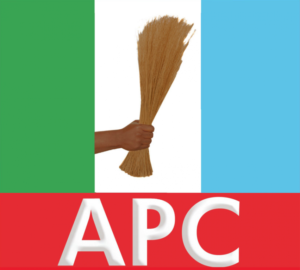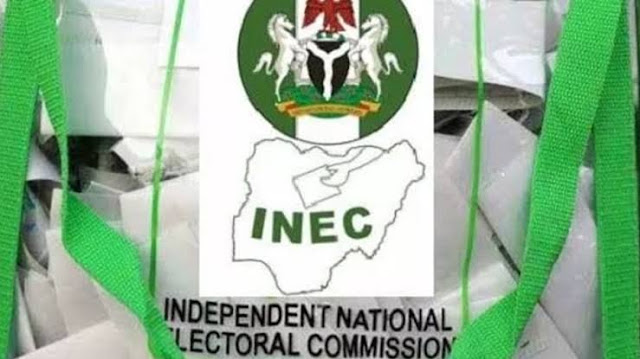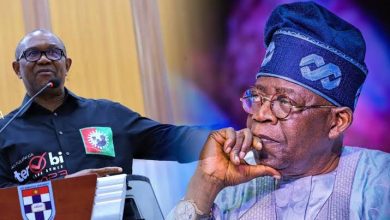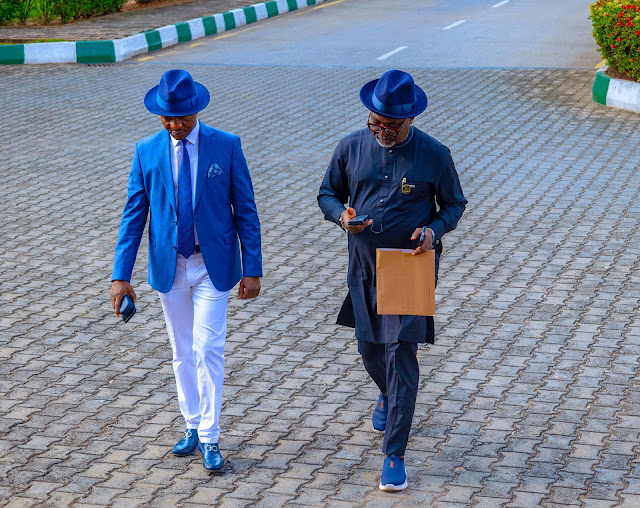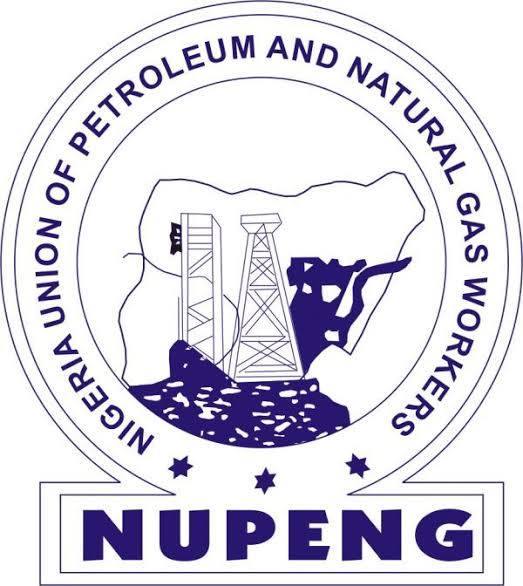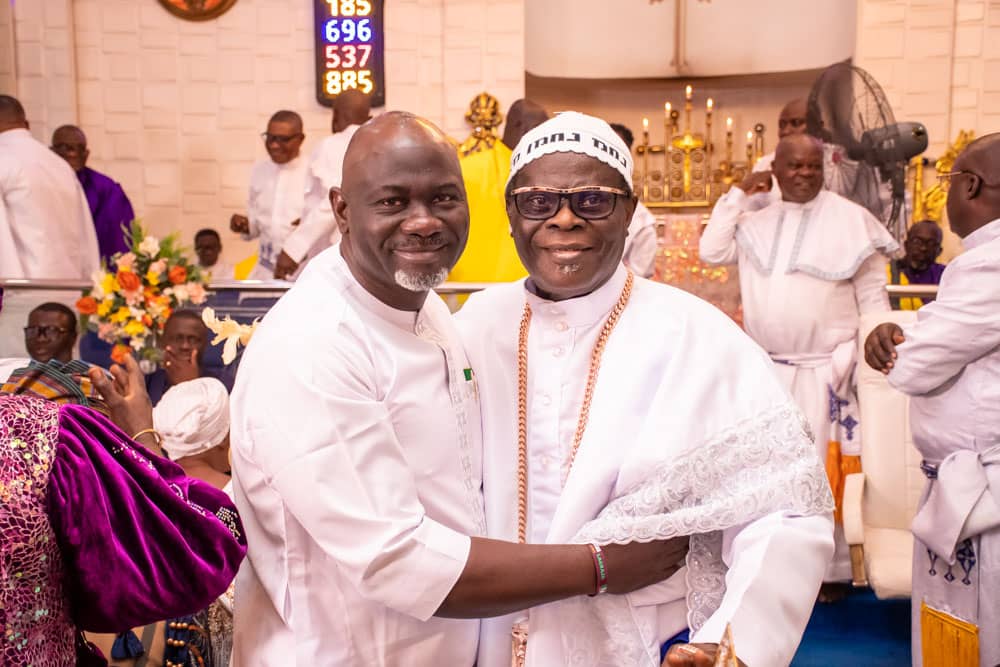In a firm rebuttal that underscores the deepening political rivalries ahead of Nigeria’s 2027 general elections, the All Progressives Congress (APC) has dismissed assertions by former Sokoto State Governor and current Senator Aminu Tambuwal that there exists a national consensus among opposition parties to oust President Bola Tinubu from power. The APC, through its National Publicity Secretary, Felix Morka, described Tambuwal’s claims as “baseless and laughable,” arguing that such a consensus is nonexistent and that the ruling party remains solidly positioned to retain power. This exchange highlights the intensifying scramble for political dominance in Nigeria’s polarized landscape, where alliances are fluid, and ambitions are high. As the nation approaches the midpoint of Tinubu’s first term, which began in May 2023, discussions about the 2027 polls are already gaining momentum, with stakeholders from various camps weighing in on potential strategies and outcomes.
The controversy erupted following Tambuwal’s recent statements during a political gathering in Sokoto State, where he expressed confidence in a united opposition front capable of challenging the APC’s hold on the presidency. Tambuwal, a prominent figure in the opposition Peoples Democratic Party (PDP), suggested that leaders from across the political spectrum, including those from the Labour Party and other smaller parties, were aligning behind a singular agenda to prevent Tinubu’s re-election. He portrayed this as a patriotic effort to “rescue Nigeria from the clutches of incompetence and economic mismanagement,” a narrative that has resonated with critics of the current administration. However, the APC’s swift response has thrown cold water on these assertions, framing them as desperate attempts by a faltering opposition to regain relevance.
This development is not isolated but part of a broader pattern of political posturing in Nigeria, Africa’s most populous nation and one of its largest economies. With a population exceeding 200 million and a history of turbulent transitions between military rule and democracy since 1999, Nigerian politics is characterized by fierce competition, ethnic divisions, and economic stakes that influence every election cycle. The 2023 elections, which saw Tinubu narrowly defeating Atiku Abubakar of the PDP and Peter Obi of the Labour Party, were marred by allegations of irregularities, voter suppression, and legal challenges that lingered for months. The Independent National Electoral Commission (INEC) declared Tinubu the winner with 36.6% of the votes, but the opposition’s refusal to concede fully set the stage for ongoing tensions.
Tambuwal’s Background and Political Trajectory
To understand the context of Tambuwal’s claims, it is essential to delve into his political journey, which has been marked by ambition, strategic alliances, and occasional controversies. Born on January 2, 1966, in Tambuwal, Sokoto State, Aminu Tambuwal rose through the ranks of Nigerian politics with a blend of legal acumen and grassroots mobilization. A trained lawyer, he began his career as a member of the House of Representatives in 2003 under the platform of the All Nigeria Peoples Party (ANPP). His tenure in the lower chamber of the National Assembly was notable; in 2011, he was elected Speaker of the House, a position he held until 2015, during which he navigated the complexities of a divided legislature.
Tambuwal’s defection from the PDP to the APC in 2018 was a seismic event, seen as a blow to the opposition at the time. However, he returned to the PDP in 2018 ahead of the 2019 elections, where he contested and won the governorship of Sokoto State. His administration focused on infrastructure, education, and security, particularly in combating banditry in the Northwest region. In 2022, Tambuwal stepped down from the gubernatorial race to contest the PDP presidential primary, which he lost to Atiku Abubakar. Following the 2023 elections, where he supported Atiku, Tambuwal transitioned to the Senate, representing Sokoto South. Now, as a key PDP chieftain, Tambuwal has positioned himself as a bridge-builder within the opposition, advocating for unity against the APC.
Tambuwal’s recent statements on a potential consensus against Tinubu were made during a stakeholders’ meeting organized by the PDP in Sokoto. Addressing a crowd of party loyalists, he declared, “There is a growing national consensus among well-meaning Nigerians and political leaders to ensure that President Tinubu does not return in 2027. This is not about personal ambitions but about saving our democracy and economy from further decline.” He cited the economic hardships under Tinubu’s administration—such as the removal of fuel subsidies, naira floating, and resultant inflation—as key drivers for this purported unity. Tambuwal argued that the opposition’s combined forces, drawing from the PDP’s northern base, the Labour Party’s youth appeal, and other regional influences, could form a formidable coalition.
His rhetoric taps into widespread discontent. Since assuming office, President Tinubu has implemented bold reforms aimed at stabilizing the economy, including the unification of exchange rates and subsidy removals. While these measures have been praised by international bodies like the International Monetary Fund (IMF) for promoting fiscal discipline, they have also led to skyrocketing prices of fuel (now over N600 per liter), food, and transportation. The National Bureau of Statistics reported inflation at 34.19% in July 2025, with food inflation exceeding 40%. Unemployment remains stubbornly high at around 33%, and insecurity in regions like the Northeast and Northwest persists. For many Nigerians, these challenges validate Tambuwal’s call for change, positioning the opposition as the voice of the aggrieved masses.
APC’s Rebuttal: Defending Tinubu’s Legacy
The APC’s response, articulated by Felix Morka, was unyielding. In a statement released on September 5, 2025, Morka labeled Tambuwal’s claims as “a figment of his imagination and a sign of the PDP’s internal disarray.” He emphasized that the APC, under Tinubu’s leadership, has delivered tangible progress in infrastructure, security, and economic diversification. “There is no national consensus to unseat President Tinubu because his administration has the people’s mandate and is working tirelessly to fulfill it. Tambuwal’s outbursts are mere political theater from a party that is still reeling from its 2023 defeat,” Morka stated.
Morka’s defense highlights several achievements of the Tinubu administration. Since 2023, the government has launched initiatives like the Student Loan Act to enhance education access, the Credit Corps program for agricultural financing, and renewed efforts against corruption through the Economic and Financial Crimes Commission (EFCC). Infrastructure projects, including the continuation of the Lagos-Calabar Coastal Highway and the Second Niger Bridge, have been prioritized. On security, Tinubu has intensified military operations against Boko Haram and banditry, though critics argue that results are mixed. Economically, the administration has attracted foreign investments in the oil and gas sector, with deals signed at the 2024 Nigeria Oil and Gas Forum.
The APC also pointed to the opposition’s fragmentation as evidence against any consensus. The PDP has been plagued by internal crises, including leadership tussles and defections. The Labour Party, buoyed by Peter Obi’s 2023 performance (25.4% of votes), has struggled to consolidate its gains amid funding shortages and organizational weaknesses. Other parties like the New Nigeria Peoples Party (NNPP) and the Social Democratic Party (SDP) have regional strongholds but lack national cohesion. Morka argued that these divisions make a unified front “a pipe dream,” predicting that the APC would capitalize on them in 2027.
This rebuttal is part of the APC’s broader strategy to consolidate power. Formed in 2013 as a merger of opposition parties, the APC swept to victory in 2015 under Muhammadu Buhari, ending 16 years of PDP rule. Under Tinubu, a former Lagos Governor and APC national leader, the party has focused on “renewed hope,” a slogan encapsulating its agenda. However, the APC faces its own challenges, including internal factions—such as the rift between Tinubu and former Vice President Yemi Osinbajo—and accusations of favoritism toward the Southwest.
Historical Context of Nigerian Presidential Elections
To appreciate the significance of this exchange, one must examine the historical patterns of Nigeria’s presidential contests. Since the return to democracy in 1999, elections have been defined by zonal rotations, ethnic arithmetic, and power-sharing formulas. The presidency has alternated between the North and South to maintain balance in a country divided along religious and ethnic lines—Hausa-Fulani in the North, Yoruba in the Southwest, Igbo in the Southeast, and minorities in the South-South and North-Central.
Olusegun Obasanjo (PDP, Southwest) won in 1999 and 2003, followed by Umaru Yar’Adua (PDP, North) in 2007, and Goodluck Jonathan (PDP, South-South) in 2011. Buhari’s 2015 and 2019 victories (APC, North) shifted power back north, paving the way for Tinubu (Southwest) in 2023. This rotation theory suggests that 2027 should favor a northern candidate, potentially complicating Tambuwal’s (also northern) ambitions if he’s eyeing the presidency. Tambuwal’s consensus talk may be a subtle bid to position himself as a unifying figure.
Past elections have often featured coalitions. In 2019, the APC’s coalition-building secured victory despite opposition efforts. The 2023 race saw the “Obidient” movement propel Obi, but vote-splitting among opposition candidates favored Tinubu. Analysts like those from the Centre for Democracy and Development (CDD) note that while consensuses form, they rarely hold due to personal ambitions. For instance, the 2011 PDP primary saw Jonathan prevail over northern rivals, leading to regional tensions.
Legal battles have also shaped outcomes. Post-2023, the Supreme Court upheld Tinubu’s victory in October 2023, dismissing petitions from Atiku and Obi on technical grounds. This precedent suggests that 2027 disputes could similarly favor the incumbent unless electoral reforms are enacted. INEC’s adoption of the Bimodal Voter Accreditation System (BVAS) improved transparency in 2023, but glitches and logistics issues persist, fueling calls for further reforms.
The 2027 Election Landscape: Challenges and Opportunities
Looking ahead to 2027, the political terrain is fraught with uncertainties. The constitution mandates elections by February 2027, with primaries likely in mid-2026. Tinubu, at 75 in 2027, is eligible for a second term, but health rumors and economic pressures could influence his decision. If he runs, the APC’s primaries will be a battleground, with potential challengers like Vice President Kashim Shettima (North) or governors like Babajide Sanwo-Olu (Lagos).
For the opposition, Tambuwal’s vision of consensus faces hurdles. The PDP, under acting National Chairman Umar Iliya Damagum, is rebuilding after 2023 losses. Atiku, at 80 in 2027, may step aside, opening doors for younger aspirants like Tambuwal or governors like Umo Eno (Akwa Ibom). The Labour Party, with Obi as a likely frontrunner, appeals to urban youth but needs to expand rurally. A grand alliance—perhaps under the African Democratic Congress (ADC) or a new platform—could merge strengths, but egos and funding remain barriers.
Economic factors will dominate. Nigeria’s GDP growth is projected at 3.5% for 2025 by the World Bank, but debt servicing consumes 90% of revenue, limiting social spending. Issues like climate change (flooding in the North), youth unemployment (over 50% for ages 15-24), and gender inequality (women’s representation in politics below 10%) will shape voter priorities. Security, with over 10,000 deaths from banditry since 2023 per the Council on Foreign Relations, could sway northern votes.
Regionally, the Southwest remains APC’s bastion, the North mixed, the Southeast pro-Obi, and the South-South PDP-leaning. Zoning debates will intensify; a northern consensus candidate might emerge if Tinubu doesn’t run. International observers, like the EU and US, will monitor for fairness, given Nigeria’s role in ECOWAS and global oil markets.
Implications for Nigerian Democracy and Economy
This APC-Tambuwal spat has profound implications. Politically, it signals early campaign mode, potentially escalating rhetoric and divisiveness. If opposition unity materializes, it could pressure the APC to perform better; otherwise, vote fragmentation might ensure Tinubu’s re-election. For democracy, it underscores the need for reforms: campaign finance limits, independent INEC funding, and diaspora voting to boost participation (only 27% voted in 2023).
Economically, uncertainty could deter investments. Nigeria’s stock market has fluctuated, with the NSE All-Share Index up 20% in 2025 but vulnerable to political risks. A stable transition would reassure investors in sectors like tech (with hubs in Lagos) and renewables. Socially, it highlights youth disenfranchisement; movements like #EndBadGovernance protests in 2024 demanded better governance, echoing Tambuwal’s critiques.
Experts like Professor Aisha Abdullahi from Ahmadu Bello University argue that true consensus requires issue-based campaigns, not personality clashes. The MacArthur Foundation’s grants for electoral integrity could play a role. Ultimately, 2027 will test Nigeria’s democratic resilience, determining if reforms lead to inclusive growth or perpetuate elite capture.
Stakeholder Reactions and Broader Perspectives
Reactions to the controversy have been varied. PDP spokespersons like Debo Ologunagba supported Tambuwal, calling it “a reflection of public sentiment.” Labour Party’s Obiora Ifoh was cautious, saying, “Unity is key, but actions speak louder.” Civil society groups like Yiaga Africa urged focus on voter education over mudslinging.
From the APC side, governors like AbdulRahman AbdulRazaq (Kwara) echoed Morka’s dismissal, while northern elders expressed concerns over zoning. Media outlets like Premium Times and Vanguard have covered it extensively, with editorials calling for dialogue.
Internationally, the US State Department reiterated support for free elections, while the African Union emphasized peaceful transitions. Economists warn that prolonged instability could worsen the naira (at N1,600/$ in 2025) and inflation.
Potential Scenarios for 2027
Several scenarios emerge. Scenario one: Tinubu runs and wins, leveraging incumbency. Scenario two: He steps down, paving for a northern APC candidate like Shettima, facing a united opposition. Scenario three: Opposition consensus forms around a figure like Tambuwal or Obi, leading to a tight race. Scenario four: Fragmentation results in APC victory by default.
Regardless, voter turnout, technology (electronic collation), and judicial independence will be pivotal. The National Assembly’s ongoing electoral bill amendments could address these.
Conclusion: Navigating Towards 2027
The APC’s rejection of Tambuwal’s consensus claim is more than a partisan retort; it’s a microcosm of Nigeria’s high-stakes political arena. As debates rage, the focus should shift to substantive issues—economy, security, equity—that affect ordinary Nigerians. For Tambuwal and the opposition, building genuine alliances requires overcoming historical distrust. For the APC, delivering on promises is crucial to counter narratives of failure.
Nigeria’s democracy, though young, has endured. The 2027 elections offer a chance for renewal, provided stakeholders prioritize national interest over parochial gains. With the current date of September 7, 2025, marking the ramp-up to these polls, all eyes are on how this drama unfolds. Ultimately, the true consensus will be forged at the ballot box, reflecting the will of over 200 million citizens aspiring for a prosperous future.


